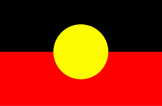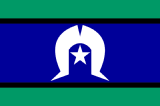Being a foster carer can be one of the most important, rewarding roles, but it can also be intense, challenging, and immensely draining. Caring for children and young people who may have endured traumatic or difficult experiences, takes a huge commitment. Meeting the needs of these children can be so all-consuming, that sometimes carers forget about caring for themselves.
Let’s think of the analogy of having to put on our own oxygen mask before putting the masks on our children. The thinking behind this being that as caregivers, we must take care of ourselves so that we are able to give full and proper care to our children. However, actually putting this into practice in our everyday lives is not always easy. Foster carers are selfless people who put their children’s needs before their own.
Caring for children who have experienced trauma can take its toll. When the stress of parenting affects our mental and physical health or interferes with our ability to parent effectively, we are suffering from “compassion fatigue.” The following can be signs of compassion fatigue:
Feeling mentally or physically exhausted most of the time
Using alcohol, food, caffeine, or other substances to fight feelings of being overwhelmed
Sleeping too much or too little
Feeling numb and distanced from others or your own life
Feeling unsatisfied in your work
Feeling moody, frequently lashing out at children or your partner
Catching frequent colds, experiencing headaches or stomach aches
When we start showing these signs, chances are we aren’t providing the consistent,
predictable, enriching, and nurturing care the children in our homes need. Self-care can help us get back on track; it can also prevent us from getting to this point in the first place.
It is important for foster carers to have strategies to care for themselves and recognise signs that they need to recharge. Every carer will have their own individual needs, and individual strategies suitable to them.
Self-care doesn’t have to be expensive or involve huge amounts of time. Even stepping out into the backyard and taking a couple of deep breaths can be quite restorative; often useful in diffusing a stressful situation too.
The key is creating the habit of self-care; incorporating some activity into your daily routine, and doing this mindfully, acknowledging that this is not wasting time but contributing to your wellbeing and self-nurturing. Self-care is not a luxury, it’s a necessity.
Here are a few basic self-care tips that may be part of every person’s life:
Get adequate sleep
Eat a healthy, balanced diet, including breakfast. Avoid eating on the run, behind your desk, or in your car.
Get some form of regular exercise.
Take regular breaks from stressful activities. Non-stop parenting can be a stressful activity.
Find a way, somehow, every day, to have at least a few minutes to yourself. Take a relaxing bath, read a book, sit outside, have a cup of herbal tea.
Laugh every day.
Express yourself. If you’re feeling frustrated, sad, or angry, be honest about your emotions before they get out of control.
Engage in something that you love, such as a craft, a game, writing etc.
Nurture your relationships with your partner, family, and friends, have a “date night”
Let someone else do something to take care of you
Following recent Well Being Carer Retreats and other training opportunities for carers, the FCAV is acutely aware of the challenges and stresses in everyday lives for carers. There are many added complexities of returning to busy lives after Victorian lockdowns with COVID 19 and increased significant mental health concerns for many adults and children in the care services sector.
Kristen Neff is a leading world expert in relation to Self-Compassion and its benefits to mental health. Kristen states research that self-compassion has many benefits, ranging from fewer depressive and more optimistic thoughts, overall greater happiness and life satisfaction, to greater social and emotional skills and improvements in physical health. Specifically, some positive effects noted by studies are:
It increases motivation.
It boosts happiness.
It improves body image.
It enhances self-worth.
It fosters resilience.
It reduces mental health problems, including anxiety, depression, and stress.
One easy way to care for and comfort yourself when you’re feeling badly is to give yourself supportive touch. Touch activates the care system and the parasympathetic nervous system to help us calm down and feel safe. It may feel awkward or embarrassing at first, but your body doesn’t know that. It just responds to the physical gesture of warmth and care, just as a baby responds to being cuddled in its mother’s arms. Our skin is an incredibly sensitive organ. Research indicates that physical touch releases oxytocin, provides a sense of security, soothes distressing emotions, and calms cardiovascular stress. So why not try it?
You might like to try putting your hand on your body during difficult periods several times a day for a period of at least a week.
When you notice you’re under stress, take 2-3 deep, satisfying breaths.
Gently place your hand over your heart, feeling the gentle pressure and warmth of your hand. If you wish, place both hands on your chest, noticing the difference between one and two hands.
Feel the touch of you hand on your chest. If you wish, you could make small circles with your hand on your chest.
Feel the natural rising and falling of your chest as you breathe in and as you breathe out.
Linger with the feeling for as long as you like.
Some people feel uneasy putting a hand over the heart. Feel free to explore where on your body a gentle touch is actually soothing. Some other possibilities are:
One hand on your cheek
Cradling your face in your hands
Gently stroking your arms
Crossing your arms and giving a gentle squeeze
Gently rubbing your chest, or using circular movements
Hand on your abdomen
One hand on your abdomen and one over heart
Cupping one hand in the other in your lap
Hopefully you’ll start to develop the habit of physically comforting yourself when needed, taking full advantage of this surprisingly simple and straightforward way to be kind to ourselves.
The Carer Assistance Program at FCAV is the sector specific therapeutic support service for foster, permanent care and Adoptive families in Victoria. Sessions are free, confidential and provides unique support to you.
Carer Information & Support Service | Foster Care Association of Victoria (fcav.org.au)
Telephone support- Call the CISS team at FCAV 9416 4292 or make an online booking.
EAP through your agency; The Employee Assistance Program is a confidential counselling service provided by your foster care agency to support carers’ emotional and psychological well-being
Respite Care
GP - mental health care plan: referral to psychologist for up to 20 counselling sessions (Gap can sometimes be paid by foster care agency)
Phone another carer who will have had similar lived experience
There are some useful apps you can download onto your mobile phone to remind you of selfcare. Here are just a few:
https://play.google.com/store/apps/details?id=com.calm.android&hl=en_AU
Extra reading
Villa Maria: State funding (VMCS): Every carer’s needs are a little bit different and it’s easy to get lost when trying to understand your options. Our Case Managers take the time to understand your stressors and identify what support services are right for you. We also check in from time-to-time, making sure that as your needs change so does your support.
Some of the short term supports Villa Maria offer are:
Home care services, like meal preparation, laundry and gardening
Flexible respite
Support in an unexpected situation
Education and information
Wellbeing activities
For new referrals contact: 1300 698 624 or mysupport@vmch.com.au
For event information contact: 1300 971 720 or carereventseast@vmch.com.au
https://vmch.com.au/services/carer-support/ p: 1300 971 720 vmch.com.au
Carer Gateway: Federal Funding: https://www.carergateway.gov.au/
Carer Gateway aims to make your life easier. By calling Carer Gateway, you will be connected with a new Australia-wide network of Carer Gateway service providers. They will talk through what you need and help you to find local services and support to help you.
All carers can access Carer Gateway services. You are a carer if you are looking after someone with disability, a medical condition, mental illness or who is frail due to age.
You don't need to be a new carer to use Carer Gateway services – any carer can use the services at any time in their caring journey.
When you call Carer Gateway on 1800 422 737, you will reach a Carer Gateway service provider in your area. A trained worker will be available to talk with you and then help you to find services and support to meet your needs.
Carer services are available through a new Australia-wide network of Carer Gateway service providers.
Association for children with a disability (ACD) : https://www.acd.org.au/
They offer a free support line to families of a child with a disability and also have on line resources.
The easiest way to contact them is to:
Email acdsupport@acd.org.au with your preferred day and time for a call back
Or text 0475 577 997 with your preferred day and time for a call back
Or call 03 9880 7000 or 1800 654 013 (regional)
Some of the most important tips for carers include:
Ask for help when you need it.
Take time for yourself (e.g. respite services)
Exercise, eat healthily and sleep well.
Relax regularly.
Keep up social contacts.
Attend a carers group for support.
Access all available services and funding.
Acknowledge and deal with feelings.


